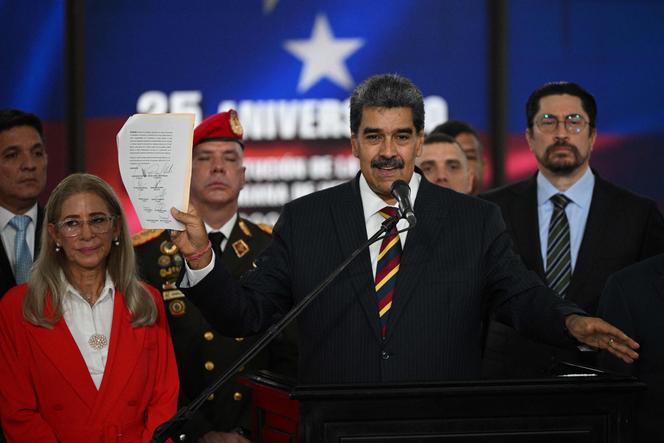


It hadn't even been 45 minutes since the declaration of Nicolas Maduro's contested victory in the July 28 presidential election when Chilean President Gabriel Boric posted on X: "The Maduro regime must understand that the results it publishes are difficult to believe." Ten days later, Boric said anew that he had no doubt that the Venezuelan president had "attempted to commit fraud."
Contrary to what was expected of the radical left from which he hails, Boric did not recognize Maduro's election, although he also refrained, for the time being, from recognizing that of Edmundo Gonzalez, the opposition candidate. Gonzalez called for a "worldwide" demonstration on Saturday, August 17, to "ratify" his victory, as he also claims to have won the presidential election.
Caracas's response to Boric was not long in coming: "The mask has fallen. His Pinochetist and putschist government has been revealed," declared Venezuelan Foreign Minister Yvan Gil. In retaliation, Caracas expelled Chilean diplomatic personnel, as well as those from Argentina, Costa Rica, Peru, Panama, the Dominican Republic and Uruguay, six countries governed by the right and which also doubted Maduro's victory.
Unsurprisingly, Cuba and Nicaragua congratulated the Venezuelan president. This time, however, the Latin American left was not united behind Maduro: Colombia, Mexico and Brazil aligned themselves with the European Union and (even) the United States, in demanding proof of his victory and the release of the election records. The traditional right-left divide seems here to have given way to a division between authoritarian regimes and democracies.
Admittedly, the official statements made by the leaders of Brazil (Luiz Inacio Lula da Silva, known as "Lula"), Colombia (Gustavo Petro) and Mexico (Andres Manuel Lopez Obrador, commonly referred to as "AMLO"), have so far been more measured than Boric's. "But all three governments are committed to an approach of negotiations with Maduro, and they are walking on eggshells," explained Olivier Compagnon, a professor of contemporary history at the French Institute of Latin American Studies. "The idea is to not break contact, in order to find a peaceful solution to the crisis."
Brazil and Colombia, which share borders with Venezuela, particularly fear a new wave of migration: 7 million Venezuelans have already left the country over the last 10 years. On August 15, Lula and Gustavo Petro proposed a coalition government and new elections – a suggestion categorically rejected by both the opposition and the government.
You have 63.9% of this article left to read. The rest is for subscribers only.
